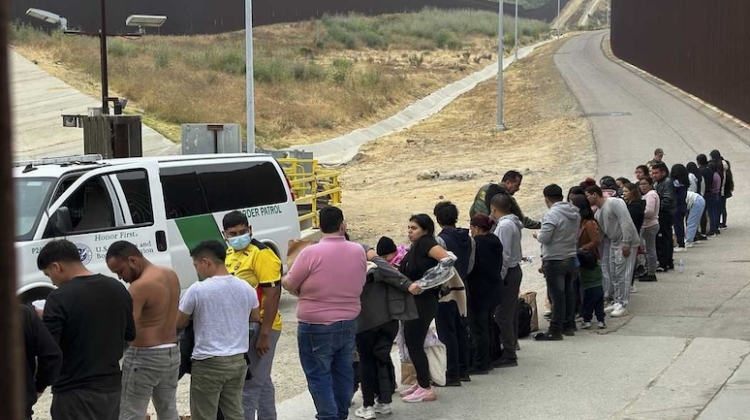President-elect Donald Trump has pledged to “launch the largest deportation of criminals in American history.” That is a quote from a Nov. 2 rally in Salem, Virginia, but Trump has said precisely the same thing dozens of times. Still, through the course of a long campaign, with his improvisational style, Trump has occasionally worded his pledge differently. For example, at his Madison Square Garden rally, Trump said, “On day one, I will launch the largest deportation program in American history to get the criminals out.” Back on May 24, at his rally in the South Bronx, Trump pledged to “immediately begin the largest criminal deportation operation in our country’s history.” So variations in wording aside, when Trump talks about mass deportation, he is talking about the mass deportation of criminals.
It’s hard to imagine opposing Trump’s proposal. Who would want to help murderers and drug dealers who entered the country illegally remain in the United States? Yet we have seen much talk that Trump deportation plans go far, far beyond criminals and will ultimately lead to 10, 15 or perhaps even 20 million people being removed from the country. Part of this is media hysteria. But part of it comes from loose talk by Trump and his advisers.
But the Trump plan has been visible in plain sight for quite a while. First, the new administration will seek to quickly deport those illegal immigrants who are deemed national security threats. At the same time, it will pursue illegal immigrants with criminal records, either in the United States or some other country. And all the while it will assign priority to the illegal migrants whose cases have already been adjudicated and ordered removed.
“You concentrate on the public safety threats and the national security threats first because those are the worst of the worst,” Tom Homan, recently named as Trump’s “border czar,” said over the weekend on Fox News. “So it’s going to be the worst first. That’s how it has to be done. We know a record number of people on the terrorist watch list have crossed this border. We know a record number of terrorists have been released in this country. We have already arrested some [who were] planning attacks. So look, the president is dead-on when he said criminal threats, national security threats are going to be prioritized. And that’s the way it’s going to be.”
There is a clear guide for doing this. Last year, Immigrations and Customs Enforcement reported that as of September 30, 2023, there were 1,292,830 people in the United States illegally who have had full legal due process and have received a final deportation order from an immigration judge. In the ensuing year, there are estimates that number has grown to somewhere between 1.35 million and 1.6 million. […]
— Read More: www.frontpagemag.com
What Would You Do If Pharmacies Couldn’t Provide You With Crucial Medications or Antibiotics?
The medication supply chain from China and India is more fragile than ever since Covid. The US is not equipped to handle our pharmaceutical needs. We’ve already seen shortages with antibiotics and other medications in recent months and pharmaceutical challenges are becoming more frequent today.
Our partners at Jase Medical offer a simple solution for Americans to be prepared in case things go south. Their “Jase Case” gives Americans emergency antibiotics they can store away while their “Jase Daily” offers a wide array of prescription drugs to treat the ailments most common to Americans.
They do this through a process that embraces medical freedom. Their secure online form allows board-certified physicians to prescribe the needed drugs. They are then delivered directly to the customer from their pharmacy network. The physicians are available to answer treatment related questions.



